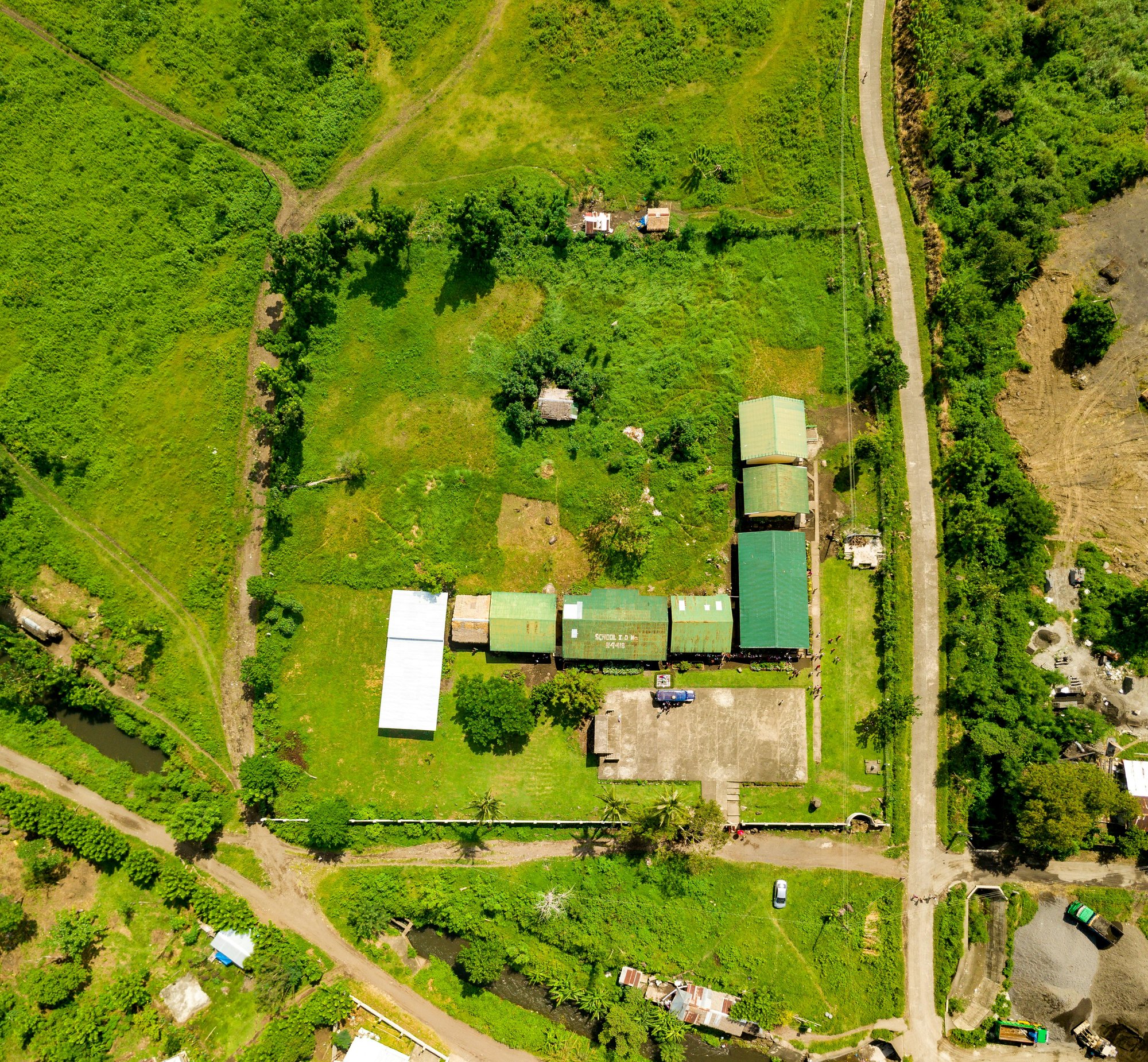Subdivision Lawyers:
Simplify Your Subdivision Journey
Expert subdivision lawyers ensuring seamless property development and maximising your investment potential.
Navigating Subdivision Challenges in New Zealand
Expert Legal Guidance to Simplify the Process

Untangling Subdivision Legal Roadblocks in New Zealand
From navigating council regulations to managing boundary disputes, subdivision projects in NZ can be fraught with complexities. Our expert legal advice ensures your project stays compliant, avoids costly errors, and progresses smoothly.
Subdivision Challenges? We Simplify the Legal Process in NZ
Subdividing land in New Zealand can be overwhelming, with council regulations, zoning restrictions, and title complications creating roadblocks. As experienced subdivision lawyers, we provide clear legal guidance to overcome these challenges and ensure your project runs smoothly.
Subdivision Made Simple – Legal Expertise for Seamless Projects
Whether it’s dealing with easements, compliance issues, or neighbour disputes, subdivisions in NZ can quickly become stressful. Let us handle the complexities, so you can focus on bringing your vision to life with confidence.
What does a Subdivision Lawyer Do?
Something Powerful
Tell The Reader More
When dealing with property and land development, the process of subdivision is often an essential step. Subdividing a piece of land involves dividing a larger parcel into smaller sections, each with its own legal title. This process can seem straightforward, but it is, in reality, a complex legal and regulatory undertaking. This is where a Subdivision Lawyer plays a vital role. From providing legal advice to ensuring compliance with local council requirements, subdivision lawyers handle the intricacies of the subdivision process, enabling property owners and developers to achieve their goals efficiently and legally.
The Role of a Subdivision Lawyer
A Subdivision Lawyer specialises in the legal aspects of subdividing land. They offer a range of services to ensure that the process meets all legal and regulatory requirements. These services include:
-
Legal Advice and Feasibility Assessment Before proceeding with a subdivision, property owners must understand the legal implications and feasibility of their project. A subdivision lawyer assesses whether the land can be subdivided based on zoning laws, easements, and other restrictions. They review the property title to identify potential legal barriers, such as covenants or encumbrances, that may affect the subdivision process.
-
Navigating Zoning and Planning Regulations Zoning laws and planning regulations vary widely between regions and local councils. Subdivision lawyers provide expertise in interpreting these laws and advising clients on what is permissible for their property. For example, they may identify whether the property can be divided into residential, commercial, or mixed-use lots and guide clients in fulfilling council requirements.
-
Drafting and Lodging Applications A significant part of the subdivision process involves preparing and lodging applications with the local council or other relevant authorities. This includes resource consent applications, which are essential for gaining approval to subdivide land. Subdivision lawyers ensure that these applications are complete, accurate, and in compliance with legal standards, reducing the risk of delays or rejections.
-
Title and Survey Management Once a subdivision is approved, new land titles must be created for each lot. A subdivision lawyer works with surveyors and land registry offices to ensure that the new titles are issued correctly. They review the survey plans to confirm that they meet legal requirements and assist with registering the titles under the new ownership structure.
-
Negotiating and Resolving Disputes During the subdivision process, disputes can arise with neighbours, councils, or other stakeholders. Subdivision lawyers act as mediators and negotiators, working to resolve conflicts and protect their clients' interests. For instance, they may handle disputes over boundary lines, easements, or access rights, ensuring that the subdivision proceeds smoothly.
-
Easements and Rights of Way Easements and rights of way are common in subdivisions, particularly when shared access roads or utility connections are involved. A subdivision lawyer drafts and registers easement agreements, ensuring that all parties understand their rights and obligations. This step is critical for avoiding future disputes between property owners.
-
Compliance with Environmental Regulations Many subdivisions require adherence to environmental regulations, especially if the land includes protected areas, waterways, or significant vegetation. Subdivision lawyers advise clients on how to meet these requirements, such as obtaining permits for tree removal or ensuring proper stormwater management.
-
Tax and Financial Considerations Subdividing land can have tax implications, including capital gains tax, GST, or land tax. A subdivision lawyer collaborates with financial advisors and accountants to ensure that clients understand and manage these obligations effectively. They may also assist in structuring ownership to minimise tax liabilities.
-
Finalisation and Settlement The final stage of a subdivision involves transferring ownership of the newly created lots. Subdivision lawyers prepare the necessary contracts and oversee the settlement process. They ensure that all legal obligations are met, including the payment of council fees, registration of titles, and transfer of ownership.
Why Hire a Subdivision Lawyer?
The subdivision process involves multiple legal, technical, and administrative steps, each with potential challenges. While some property owners may attempt to navigate this process independently, hiring a Subdivision Lawyer offers significant advantages:
- Expertise and Experience: Subdivision lawyers have in-depth knowledge of property law and local regulations, enabling them to anticipate and address potential issues.
- Time and Cost Efficiency: By handling the legal complexities, a subdivision lawyer saves clients time and helps avoid costly mistakes.
- Risk Mitigation: Their expertise ensures compliance with all legal requirements, reducing the risk of disputes, penalties, or project delays.
- Tailored Advice: Subdivision lawyers provide personalised advice based on the unique circumstances of each project, helping clients make informed decisions.
Common Challenges in Subdivisions
The subdivision process is rarely straightforward, and property owners often encounter various challenges. A Subdivision Lawyer helps navigate these issues, which may include:
-
Zoning Restrictions Zoning laws dictate how land can be used and developed. For instance, a property zoned for agricultural use may have strict limitations on subdivision. A subdivision lawyer interprets these regulations and advises on potential workarounds or rezoning applications.
-
Council Approval Delays Securing council approval for a subdivision can be time-consuming. Subdivision lawyers streamline this process by preparing thorough and compliant applications, addressing council queries promptly, and advocating on behalf of their clients.
-
Neighbour Objections Neighbours may object to a subdivision due to concerns about increased traffic, reduced privacy, or environmental impacts. A subdivision lawyer helps address these objections through negotiation or legal representation, ensuring the project can proceed.
-
Boundary Disputes Disputes over property boundaries can delay a subdivision. Subdivision lawyers work with surveyors to resolve these disputes and ensure that the subdivision plan is accurate and legally enforceable.
-
Infrastructure Requirements Subdividing land often requires new infrastructure, such as roads, utilities, and drainage systems. Subdivision lawyers liaise with councils and contractors to ensure these requirements are met and legal obligations are fulfilled.
Key Skills of a Subdivision Lawyer
To excel in their role, a Subdivision Lawyer must possess several key skills:
- Legal Expertise: A deep understanding of property law, planning regulations, and land title processes.
- Attention to Detail: The ability to review complex documents and ensure accuracy in legal filings.
- Communication Skills: Effective communication with clients, councils, surveyors, and other stakeholders.
- Problem-Solving Ability: The capacity to identify potential issues and develop practical solutions.
- Negotiation Skills: The ability to mediate disputes and secure favourable outcomes for clients.
When Should You Consult a Subdivision Lawyer?
If you are considering subdividing land, it is advisable to consult a Subdivision Lawyer as early as possible. Early involvement ensures that potential legal issues are identified and addressed before they become obstacles. Whether you are subdividing a small residential block or a large commercial property, a subdivision lawyer provides the expertise needed to navigate the process with confidence.
Why Choose Our Subdivision Lawyers?
Subdivision Lawyers in NZ Providing Fast & Reliable Advice:
Get clear, actionable legal guidance tailored to your subdivision project.
Subdivision Lawyers Providing You With a Hassle-Free Process:
We handle the paperwork and compliance so you can focus on your goals.
Proven Experience: With years of experience, we’ve helped countless Auckland clients achieve subdivision success.

Our subdivision lawyers are here to make your subdivision smooth and stress-free:
New Zealand Resource Consents: Assistance with applications to meet all council requirements.
New Land Titles: Guidance through the creation of new land titles in NZ.
Easements & Covenants: Drafting and registration to secure your property rights.
Boundary Adjustments: Tailored advice to achieve your desired outcomes.
Subdivision Disputes: Professional resolution for any issues along the way.
Subdivision Lawyer FAQ's
How much does subdivision cost in NZ?
Subdivision costs in New Zealand can vary widely depending on factors like property location, council fees, and the complexity of the project. For a clear understanding of potential costs specific to your situation, get in touch with us. We can guide you through the process and provide insights tailored to your needs.
What is the subdivision law in New Zealand?
Subdivision laws in New Zealand involve various regulations and requirements, including compliance with local council rules and resource consent. Our legal experts specialise in navigating these complexities and can provide the guidance you need to ensure your subdivision complies with the law. Contact us today for advice tailored to your project.
Is it worth it to subdivide?
The value of subdividing depends on your goals, property type, and market conditions. While subdivision can increase the value of your property, it requires careful planning and legal expertise. Reach out to us for a consultation to discuss whether subdivision is the right move for you.
Can you borrow money to subdivide?
Yes, you may be able to secure funding for a subdivision, but it depends on factors such as your financial situation and the scope of the project. We can connect you with the right professionals to explore your options and ensure the process is handled smoothly. Get in touch to learn more.
How long does the subdivision process take?
The timeline for a subdivision project in New Zealand varies based on council approvals and other factors. It’s important to have expert guidance to avoid unnecessary delays. Contact us to learn how we can help streamline your subdivision process.
What are the risks of subdividing?
Subdivision projects can involve unexpected challenges, from council objections to disputes with neighbours. Working with an experienced subdivision lawyer can help you anticipate and mitigate these risks. Let’s discuss how we can assist you—reach out today for expert advice.